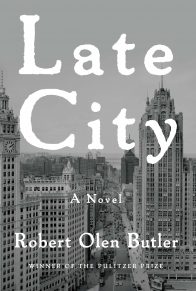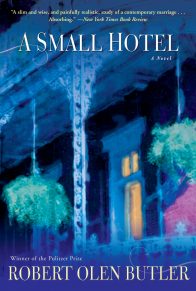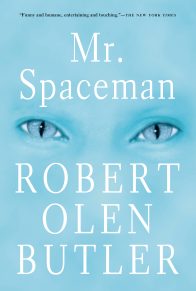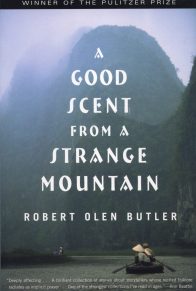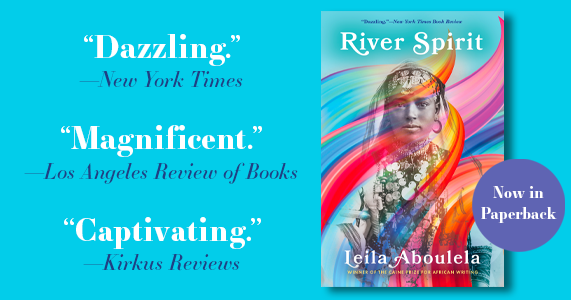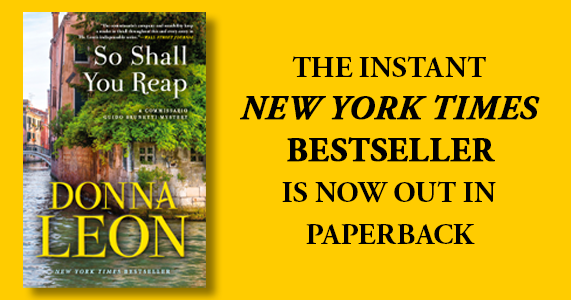My fifth day at the hotel I pretty near ran down John Stanford Barnhill in the corridor past the second-floor library. I was making time with a pitcher of water to a public room along the way, where some other swell was receiving guests like the whole place was his mansion and he was doing an at-home in his own parlor. The Oriental rugs are thick underfoot all over the Touraine and I was making no sound and Barnhill bolts out of the library door and I pull up sharp, tucking the pitcher into me so I’ll take the splash instead of him.
Which I do, down my bellboy jacket with the brass buttons, and he says, “Whoa, Dobbin,” like I’m a spooked dray horse. I just keep my mouth shut. No Sorry, sir or Excuse me, sir like I know I’m supposed to do, but this guy’s about my age, not much into his twenties, and he’s in a serge suit with cigars sticking out of his pocket and he gets my goat in an instant. I’m still figuring out what to think about this job and I decide right off not to play the lackey to guys like this. This is even before I know who he is, exactly, heir to millions by being born the only grandnephew of somebody else who was born to millions and so on. I just take the splash and sashay around him and head on down to where I’m supposed to go. He could yell something after me, about my being a rude working-class bumpkin or some such, but he doesn’t. I figure it’s running through his head, though.
Then later that day I’m going out of the place in my own clothes, my uniform hanging in a wire locker in the changing room, and you’d think he’d never recognize me, but you’d think wrong. I’m going out of the hotel and he says, “You one of those bare-headed anarchists to boot?” To boot meaning bomb-throwing anarchist in addition to water-spilling bellboy, and the whole thing has been set off by my going without a hat, which has always been my way, unlike the vast herds of men in the world. But I don’t like a thing to bind me in around my head. All of which sounds grand and free on my part, but I guess that’d be wrong too, because in response to his cheek I say, “No, sir,” and I keep on going and I like to bite my tongue off.
I’ve picked up the habit of servant talk already, after just five days, and I shoot him a hard look over my shoulder and he’s already turned away, wearing a Prince Albert coat and a high-crowned bowler, which he’s just starting to tip to a woman in a veil going by. So I dash across Tremont, dodging a streetcar and a couple of galloping horses and the express wagon they’re pulling, and I cut into the Common.
This is my parlor, the Common, and I take a winding way through, slowing down, putting Barnhill out of my mind, though a bunch of guys like him are always floating through this place as well, usually squiring young women in big straw hats full of ostrich feathers. But I swing over to the open fields and the fellows there are playing baseball and one of them who thinks he’s Tris Speaker makes a headlong dive for a hit into the outfield and he almost has it but not quite. Then he’s in for it to get back to his feet and chase the ball down while the batter’s making for third base. I don’t blame him for trying, even if he’ll never play for the Red Sox.
I turn away and move on and dig into my pocket for the pack of Meccas I bought in the lobby shop before I left the hotel. I open it and stick a smoke into my mouth and light it up and I’m starting to think about Barnhill again. Also there’s some fat cigar of a guy in a bowler putting the mash on a sweet-faced girl on the path ahead of me. I go around them and I blow smoke at his right ear and I dig out my free card from the cigarette pack. They’re still giving away Champion Athletes and I’ve got a guy with aviator goggles strapped on his head and a biplane up in the sky over his shoulder and the clouds are streaked with sunset and he’s ready to go, this guy Arch Hoxsey. I stick him in my shirt pocket with the cigarettes and hustle up, moving smartly away from my fifth day of work at the Hotel Touraine.
Twenty minutes later, after skirting the edge of Beacon Hill where Barnhill’s money was waiting in a marble-columned mansion for somebody to die, I climbed the steps of our tenement in the West End and there was a great caterwauling of kids and a stink from the third-floor toilet and Mr. Spinetti’s voice was filling the stairwell from the top floor down, him being the Caruso of tenement-hollerers. I hesitated at our door and stubbed out a second cigarette I’d let myself have right away, just to get certain people out of my mind, and then I stepped in.
Mama was near the window, hunched over the side table, rolling cigars. Her back was to me. “Eli,” she said, but she didn’t turn around.
“Mama,” I said. The smell of tobacco had thickened the air in the room. I stood for a moment getting up the strength to push through it. Maybe it was mostly not wanting to see her hands at work on these things that made me hesitate, but it felt more like I was struggling against the air being heavy with this smell. Then I did finally cross the room and I was behind Mama. Beside her on the floor on one side was a gunnysack of filler leaf and on the other a wooden box with the wrapper leaves, and her hands were moving, moving. I laid my own hand on her shoulder and I wanted to lift my eyes out the window, like the tenement across the way was some great landscape or something, but I couldn’t help watching her hands rolling around and around this fancy man’s cigar, the thing shaping up there, the loose leaves tightening as she rolled it and it would end up in John Stanford Barnhill’s mouth, or somebody just like him, and Mama would get her eight mills pay. Now I looked out the window. Her sill pillow was there for later when she’d lean out into the night and talk to the women in the windows across the way.
“Just a moment,” she said. “Let me finish this one.”
I went and sat at the small round oak table where we ate and read and talked, the one piece we’d been able to keep from our plans for a house. Papa died under the hooves and wheels of a wagon hauling bricks, down at the wharf, right when we were going to be okay, when we were boarding in a nice house and Papa had plans to buy a bungalow from Sears and Roebuck and put it up out the streetcar line in some direction or other. I won’t count the years it’s been since. The night before, he gave me Rube Waddell of the St. Louis Browns from a pack of Sweet Caporals he’d smoked that day. Rube in portrait, no cap, his hair parted neatly down the middle. “This man made himself out of nothing,” Papa said.
Mama sat down beside me now. I held her hand on the tabletop. She smelled of tobacco. Her eyes looked gray in the dim light. “How’s it at your job?” she said.
“Okay,” I said.
“You’re doing right?”
“Sure.”
“They’ll take to you.”
“I don’t know,” I said.
She took her hand from under mine and patted at me there, to reassure me. “I did a hundred twenty today,” she said.
I looked away from her, landing on the wall where she had a chromo hung of the woman at the well and Jesus asking her for water.
“Nearly a dollar,” she said.
That night I lay on my pallet propped up against the wall with a candle burning beside me. I was trying to read a Zane Grey but the cowboys with their horses and ten-gallon hats were steaming me up tonight for some reason. They think all you have to do is plug it or throw a rope around it or ride it to the ground and that solves everything. I could hear Mama breathing heavy in her sleep across the room. Somewhere on another floor some guy was yelling and somewhere else a baby was crying, but these sounds were dim, coming through all the walls in between. I reached into the pocket of my shirt hanging on a chair near me to get my cigarettes and I found Arch Hoxsey. He had a fur collar around his neck. It was cold high up in the air, I guess, no matter what the season. I turned the card over, and it said he started out working in a factory before he became a champion athlete automobile driver and then aeroplane flyer. He set a record and he rose to 11,000 feet. And then he died. He crashed trying to come back to earth on the last day of 1910. I turned his card over and looked him in the eyes. My papa would respect him. For myself, I couldn’t figure if he was a fool to leave the ground.
The next morning I was sent to John Stanford Barnhill’s rooms on the eighth floor. On the silver tray balanced on my palm was a bottle of whiskey. This was about ten in the morning, though I shouldn’t sneer because even Papa started early some days. So I knock on his door, which is slightly open, and he calls for me to come in. I push the door and step into the place, a regular cut-velvet and leather sitting room. It smells strong of cigar smoke. He’s left one lit on a saucer on the reading table. The gentleman himself is hanging out the open lower sash like the women in the tenements.
“Your whiskey,” I say, and he draws his body in from the window.
“On the table,” he says, and I put the tray down next to his cigar. I stare hard at the thing and I guess he sees me doing that.
“There hasn’t been a good Cuban crop since 1908,” he says, as if he knows I’d know something about cigars.
I look at him.
“They’re charging seventy cents for the good ones downstairs,” he says.
Now I understand. Let the anarchist bellboy know how much money you’ve got, that you can spend better than a worker’s daily wage on a couple of cigars.
“My mother does that,” I say.
“What’s that?”
“Hangs out the window. She talks to her friends and watches the street.” I regret this at once. Trying to show him he’s not so different from us, I’ve just made Mama look bad.
Barnhill flips his head to the side a little to acknowledge the window and he doesn’t even crack a smile, much less a sneer. Instead, he says, “There’s elms out there on the Common that John Hancock planted.”
“You related to him, are you?”
Now I get a little sneery smile. “John Hancock is . . .”
“I know who he is.”
Barnhill laughs. “Of course. No. I’m not related to him.”
“So you like looking at trees.”
“You want a drink?” he asks, and I think he’s dead serious.
“There’s easier ways to get me fired,” I say.
Barnhill laughs again. He moves to the reading table and I back off a step. He touches the bottle but goes to thinking about something instead. His hand just stays there holding the neck of the bottle, and he’s looking at it, thinking. I back up another step. It’s time to get out of the room. I turn, and he says, “Not so fast.”
I stop and face him again and he’s digging in his vest pocket. He holds out his hand with a dime lifted by the thumb and forefinger. “Your tip,” he says.
It’s two steps away. It’s twelve and a half cigars’ worth of work. He’s not moving. Neither am I. He gives the dime a little up-flip with his hand, like to say, Come and get it.
I lift my chin just a bit and I say, “Put it toward your next Cuban downstairs,” and I’m out of that room in a flash.
Not that John Stanford Barnhill struck me as somebody real different from a dozen other guys I’d seen around the Touraine already, living in a hotel when they could so easily have what Papa had wanted all his life. A few of them even had wives with them, so they weren’t all just helpless bachelors gagging on a silver spoon. They lived in a hotel so guys like me could hop for them and they could have a chambermaid come in and take away their soiled linens and they could just stroll downstairs and eat a fancy dinner with a little orchestra playing, but of course they could have that in homes of their own if they wanted, except for maybe the orchestra, so I just couldn’t get myself to understand. Still can’t.
Anyway, later in my sixth day at the Touraine, a bellhop from the next shift sent word he was sick and the manager asked me to stay on for a few extra hours and I said okay. And I run into Barnhill in the early evening while I’m at the front desk gathering up the bags of a man and his wife in automobile dusters. Barnhill is going out and he sees me just as I stand up straight with my arms and hands full and he tips his bowler at me going by, trying to get my goat. I just keep my face hard and steady and he puts his hat back down on his head and gives it a little tap as he goes out the door and into the night. A few minutes later I forget to talk like a servant to the guy in the duster, I guess—he asks me where the electric call bell is and I say, “Over there,” and don’t mention anything about sir or madam or let-me-lick-the-dust-off-your-boots—and I get a glare from him that I recognize for what it is right off, and still I don’t say anything respectful to try to make it up. I don’t get a tip and I don’t blame him, I guess, seeing as what he’s used to from a guy in my place, but I’m still working up an anger that I hope will stay put till this day is over. Then about ten or so the manager tells me things have slowed down enough, I should go on home, and I haven’t popped anybody yet, so I’m glad to change from my bellhop suit fast and get out of there.
I don’t cut through the Common but go up the mall along Tremont. There are lots of people around. That’s good. I walk along among all these people, some in fancy dress and some in work clothes and some smoking a bummed cigarette and some a Cuban cigar, and we all just go on along together and there’s a sharp breeze blowing, the first little whisper of the winter ahead, and then I’m coming up to the subway entrance at Park Street. The one-armed man with his two fox-colored dogs who walk around on their back legs is still selling the late edition. I pay a penny for it and then I see a crowd over by the little building where the steps go down to the train. I fold the paper and put it in my pocket and stroll over.
At the center of the crowd is an old man with a telescope on a tripod and he’s got a sign up saying ten cents to see the moon. I stand watching for a minute. Some guy makes a big show of pulling out his ten cents for the girl he’s with, and she sits on the little stool beneath the telescope, smoothing out her dress and pushing back her hat piled high with muslin roses, and then she looks into the telescope and she cries out like she’s seen somebody jump off a bridge. The crowd all goes to muttering in wonder at her shock and somebody else steps forward to pay a dime. For all I know, the guy and the girl in the big hat are confederates of the telescope man and they’ve been put up to this little show just to get the crowd going. But I find myself wanting to look, all the same.
And then Barnhill is at my elbow. “You ever want to just go to the moon?” he says.
I look at him. I get the feeling he’s putting the needle in me again, but if he’d like to have a go at me, I wish he’d just do it straight, more like a man. All I know to do is keep my mouth shut.
Then he says, “I figure I owe you a dime. Go look at the moon, on me. Okay?”
He’s got that dime up between us again. I take it.
“Good,” he says.
We both square around and wait for some guy to finish with his look, and I’m not even thinking to give the dime back. I’m not sure why this telescope makes it different, about taking money from John Stanford Barnhill, but it does. Then I get my chance. I step forward and give Barnhill’s money to the telescope man and I say, “I want to see something different.”
The old man holds up a forefinger like he’s got just the thing. He crouches behind his telescope and looks in and swivels it around and then moves aside. I step over and bend down and I look. Against the dark is a small white globe, and it’s ringed all around. “The planet Saturn,” the man says to me. Then he tells the crowd, “This gentleman is now on the planet Saturn, the sixth of our sun’s eight planets,” and he goes on with his pitch. I just ignore him. I watch this other world moving along out there millions of miles away and I wonder who it is that lives on Saturn and what makes them tick. Then the telescope man’s hand is on my shoulder and he says, “Time’s up.”
I straighten, and it takes a moment to get my bearings. I move off toward the Common, away from where I’d left Barnhill. The ring of gawkers opens for me and I’m into the dark, and then Barnhill is beside me again. “You went farther than the moon,” he says.
“I went to your home planet,” I say.
He laughs, though it sounds forced. “I’ve got my ticket back,” he says.
He’s walking with me now and it seems there’s more to this than just trying to show up the bellhop. He smells of whiskey, but he’s walking steady. “You don’t like me,” he says.
“Liking the guests ain’t part of my job,” I say.
“It doesn’t make any difference,” he says.
We’re into an open part of the Common and the breeze has picked up pretty fierce. It’s got a sting to it now.
“I’m finished at the Touraine anyway,” Barnhill says.
I’m not paying any real attention to him. I’m just thinking about getting away from him. “I’ve got to get on home,” I say, though the word catches in my throat: home. I’ve never had to call the tenement Mama and me live in by that name, and it makes me angry at Barnhill, his forcing me to say this.
We’re both stopped now on the path, the empty field before us, the stars and the planets whirling around overhead. What he says about leaving the Touraine finally sinks in.
“Finished?” I say.
Barnhill kind of shivers. “You should wear a hat in this weather,” he says, and I’ll be damned if he doesn’t take off his bowler and put it on my head.
It settles in perfect. I can feel the soft inner rim of it ringing across just below my hairline and on around my head and the hat’s light there and it’s even made it like the wind has stopped blowing, though I still can feel the bite of air on my face and hands if I try. But I’m fine inside the hat. I let it stay there. “You buying yourself a house?” I ask.
He runs a hand through his hair and lifts his chin a little. “Not quite,” he says. “My aunt’s cutting me off. She doesn’t think much of me either, as it happens.”
I’m not proud of it, but the first thing out of my mouth is, “I can get you on as a bellhop.”
He looks at me and his face is white from the moon and I find myself wishing he had the guts to pop me. I deserve it and I won’t raise a hand back at him. But he just looks at me and he doesn’t say a word. So I reach up to his hat to take it off and he says, “No. Keep it.”
That’s the last thing I’m about to do. I lift the hat and I put it on his head and he doesn’t resist. I feel the wind sharp on me again. We just look at each other and there’s no more words. Finally I say, “Good night then.”
“Good night,” he says.
The next day, my last at the Hotel Touraine, I’m thinking about John Stanford Barnhill all morning. Then I’m hanging around the front desk and you can hear the call bell going over and over in the office and the manager comes out and says Barnhill’s room number. “I’ll take it,” I say, and the bell’s still ringing as I walk away and I figure he’s drunk and in a bad mood and something in me wants it to go like that, to make things simple again. All the way up in the elevator I’m getting ready for a blowup.
Then I step off on the eighth floor and the chambermaid is hopping around waiting for me and she’s saying, “Come quick, come quick, he’s gone, right in front of me,” and I run down the hall and into Barnhill’s rooms and the sash is thrown open where he was yesterday and the curtains are blowing in and I dash through the smell of his cigars and I go halfway out the window myself and I take in the chestnuts and Hancock’s elms and the wide-open space with some guys out there playing baseball and people moving around, all this before facing what I know has happened. Then I look down, and Barnhill is there, far below, a crowd gathering around him, his arms open wide as if he leaped expecting an embrace.
I pull back in. I turn. The chambermaid is peeking in at the door. “Go get the manager,” I say, and she vanishes.
I stand very still for a long moment, trying to read that moonlit face from last night. But my brain has shut down. There’s nothing inside me except a clattering in my chest like horses’ hooves. And then my eyes focus. The reading table. Cigar butts, long gone cold, in the saucer. And beside them is John Stanford Barnhill’s bowler hat. I find myself panting like a dobbin. The room will be full of people very soon. I press myself to move. I take a step and another and another and I am at the side table and the hat sits there, the color of the night sky, and I put my hand on it, I touch my palm to its high crown, and then I pick it up. I put it on my head and it settles on me right away, like it did last night, like when he put it on me with his own hand. And then I’m out the door, heading by the back stairs to the changing room. There’s other things for me to do in this world. Other kinds of people. But he was right about me needing a hat.





